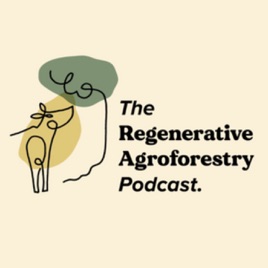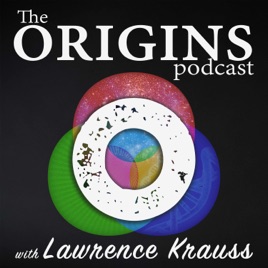
Advertise on podcast: The Regenerative Agroforestry Podcast
Rating
4.7 from
Country
This podcast has
57 episodes
Language
Publisher
Explicit
No
Date created
2020/08/11
Average duration
84 min.
Release period
35 days
Description
A space where we investigate the possibilities of agroforestry, share experiences and analyse different strategies, tools and techniques. We bring you quality, in-depth content, so that we can build together regenerative agroforestry systems. Hosted on Acast. See acast.com/privacy for more information.
Social media
Check The Regenerative Agroforestry Podcast social media presence
Podcast episodes
Check latest episodes from The Regenerative Agroforestry Podcast podcast
#55 Economic modelling and agroforestry design with Harry Greene
2023/09/04
Propagate is a leader in the agroforestry space, specialising in project development and planting agroforestry systems at scale. It's a huge pleasure to chat with Harry, co-founder and Chief Research Officer of the US-based company. Tune in as we geek out on agroforestry economics, economic modelling, design implications and financing options. We delve into questions such as: How do you business plan agroforestry systems? How do we find a balance between economic performance and ecosystem services? And much more!
• RESOURCES
https://www.propagateag.com/
• GET IN TOUCH www.regenerativeagroforestry.org
• SUPPORT US www.gumroad.com/regenagroforestry
• FOLLOW US on Twitter, Facebook, LinkedIn and Instagram
• FUNDING FOR EUROPEAN PROJECTS https://explore.ecosia.org/regenerative-agriculture
Hosted on Acast. See acast.com/privacy for more information.
more
#54 The importance of peer to peer learning to activate local agroforestry dynamics with Claire Lemarié
2023/03/02
In this episode I discuss with Claire Lemarié her experience working with farmers in the Pays de la Loire region in France, where she is a technical adviser for the chamber of agriculture. She has precious insights into the management of mature hedges, as this region still has a significant amount of bocage: a traditional french hedge layout.
In this interview we gain an understanding of why effective information sharing between farmers is crucial to creating innovative agroforestry systems and how she enables peer to peer exchange through the 'Club des Agroforestiers'.
• RESOURCES
https://www.linkedin.com/in/claire-lemari%C3%A9-34b667155/?originalSubdomain=fr
Youtube video Chambre d'agriculture de la Loire
• GET IN TOUCH www.regenerativeagroforestry.org
• SUPPORT US www.gumroad.com/regenagroforestry
• FOLLOW US on Twitter, Facebook, LinkedIn and Instagram
• FUNDING FOR EUROPEAN PROJECTS https://explore.ecosia.org/regenerative-agriculture
Hosted on Acast. See acast.com/privacy for more information.
more
#53 Practicalities of integrating coppicing into your farm with Mark Krawczyk
2022/12/27
Coppicing is an ancient and modern tree management system. Coppicing is known for its multi-functionality: capable of producing biomass, animal forage, firewood and much more. Today we interview Mark Krawczyk, practitioner, consultant and author of 'Coppice Agroforestry'. In this interview we tackle some of the practical challenges of coppicing, to better understand the economic potential of this technique. Mark demonstrates a variety of nuances and compromises, showing us the versatility as well as the key challenges of this technique.
TABLE OF CONTENTS
00:02:22 Introduction
00:13:19 What are the key concepts of coppicing
00:27:50 What impact on tree health?
00:39:12 What prospects for mechanising management?
00:51:44 What uses for coppiced wood?
01:17:42 What effect of coppicing on surrounding plants?
01:22:24 Productivity of coppice stands
01:29:14 In relation to soil types
• RESOURCES
https://www.keylinevermont.com/
http://www.coppiceagroforestry.com/
https://regenerativeskills.com/mark-krawczyk-on-coppice-agroforestry-and-woodland-management-part-1/
• GET IN TOUCH www.regenerativeagroforestry.org
• SUPPORT US www.gumroad.com/regenagroforestry
• FOLLOW US on Twitter, Facebook, LinkedIn and Instagram
• FUNDING FOR EUROPEAN PROJECTS https://explore.ecosia.org/regenerative-agriculture
Hosted on Acast. See acast.com/privacy for more information.
more
#52 Agroforestry at the landscape scale to transform ecological function and boost productivity with Bruce Maynard
2022/11/30
Bruce Maynard and his family are livestock managers and row crop farmers in New South Wales in Austalia. Over his carreer, he has succesfully integrated shrubs and trees to their livestock and row crop operation. He has been able to double his stocking rate through increasing the ecological function of the farm. We dig deep into the design of his tree systems and how it has evloved over the years. We unpack in detail how he has been able to transform his landscape on such a large scale and how this was possible from a business perspective.
TABLE OF CONTENTS
00:01:21 Bruce's story and description of the farm
00:10:06 No-kill cropping
00:15:05 Complexifying the landscape
00:22:57 Design over time
00:30:19 Taking machinery into account
00:37:57 Specifics of saltbush
00:42:30 Recovery times between bush and pasture
00:54:06 Microclimatic benefits
00:57:30 Planting trees at scale and its logistics
01:10:30 Management of trees/shrubs
01:16:00 Business strategy and cashflow
01:19:32 Ressources to go further
• RESOURCES
http://selfherding.com/index.html
https://stressfreestockmanship.com.au/
https://www.youtube.com/watch?v=fHzo0fDBZs0
• GET IN TOUCH www.regenerativeagroforestry.org
• SUPPORT US www.gumroad.com/regenagroforestry
• FOLLOW US on Twitter, Facebook, LinkedIn and Instagram
• FUNDING FOR EUROPEAN PROJECTS https://explore.ecosia.org/regenerative-agriculture
Hosted on Acast. See acast.com/privacy for more information.
more
#51 Feedback from 30 years of research on alley cropping systems with Christian Dupraz
2022/11/16
What have we learnt from 30 years at one of the most prominent agroforestry research sites in the world? In collaboration with AGROMIX, We are excited to present an interview with Christian Dupraz, a leading agroforestry researcher from INRAE Montpellier. This is one of our rare 'in person' interviews where we discussed years of findings under the alley cropping walnut trees of the Domaine de Restinclières. We analysed many technical details such as tree - crop competition, tree pruning and adapted tree species. We also discussed socio-economic aspects such as the relationship with the local farmers and the reason why alley cropping systems have not yet been scaled. Enjoy!
TABLE OF CONTENTS
02:25 Introduction
11:12 Experiment today
13:38 Growth rate of trees
17:43 Impact of AF on the quality of the wood
20:13 Considerations to produce a straight trunk
00:22 Impact on arable crop
00:26:45 Competition between crop and tree
00:30:18 Effect of pollarding on tree quality
00:33:56 How do the trees effect the row crop farmer?
00:38:08 How would tree crops fare in alley cropping?
00:39:32 Increase in bat population and its benefits
00:44:36 Main mistakes
00:48:05 What context for alley cropping to be successful?
00:56:30 Why do we not see more alley cropping?
• RESOURCES
https://www.researchgate.net/profile/Christian-Dupraz-3
https://agromixproject.eu/
• GET IN TOUCH www.regenerativeagroforestry.org
• SUPPORT US www.gumroad.com/regenagroforestry
• FOLLOW US on Twitter, Facebook, LinkedIn and Instagram
• FUNDING FOR EUROPEAN PROJECTS https://explore.ecosia.org/regenerative-agriculture
• FIND OUT MORE ABOUT OUR COLLABORATION WITH AGROMIX HERE
Hosted on Acast. See acast.com/privacy for more information.
more
#50 Hedges and trees as pillars of a viticulture agroecology transition with Jean-Baptiste Cordonnier
2022/11/04
Conventional viticulture and its intensive management has created some important challenges for wine producers and the regions where they are located. Jean-Baptiste Cordonnier has been able to intimately experience the conventional approach, seeing the fertility and biodiversity of his family's château gradually degrade. For the first time since the start of the show, we are able to delve into the story of an incredible viticulture agroforestry transition. With cover crops, hedges and alley cropping, Jean-Baptiste is innovating new solutions for a management intensive crop. We delve into the story, context, agronomy and practical details of his strategy, for an interview rich in experiences and lessons learnt.
TABLE OF CONTENTS
00:02:55 Introduction
00:07:53 Trial and error to find regenerative solutions
00:13:39 Effects of planting hedges on the vineyard
00:23:08 Design process
00:36:58 Managing weeds and pruning hedges
00:43:33 Managing the pruning at scale
00:48:12 Mulching and the importance of cover crops
01:04:02 Trees planted within the vineyard
01:10:35 What are the expected agronomic results?
01:16:49 Why advantages outweigh challenges
01:21:23 Looking at the economics
01:31:16 Are neighbouring vineyards interested?
01:34:20 What effect do you expect on the quality of wine?
• RESOURCES
https://chateauanthonic.com/en/
https://www.instagram.com/chateau_anthonic/
https://www.facebook.com/chateauanthonic/
• GET IN TOUCH www.regenerativeagroforestry.org
• SUPPORT US www.gumroad.com/regenagroforestry
• FOLLOW US on Twitter, Facebook, LinkedIn and Instagram
• FUNDING FOR EUROPEAN PROJECTS https://explore.ecosia.org/regenerative-agriculture
Hosted on Acast. See acast.com/privacy for more information.
more
#49 The potential of agroforestry in human scale regenerative enterprises with Richard Perkins
2022/10/28
I am today with Richard Perkins from Ridgedale Farm in Sweden. For those who do not know, Richard is a leading educator and author in the field of regenerative agriculture, specialising in human scale enterprises. We discuss the tree systems he has planted on his farm, and more specifically the opportunity of integrating trees to market gardening and pastured poultry, two of his key enterprises. Richard is also an educator with the mission of helping farmers to build and manage successful small scale farms. He is therefore the ideal guest to have a conversation on how to make small scale agroforestry systems viable, and their place in the farm strategy.
TABLE OF CONTENTS
01:41Richard’s story
05:45 What perennial systems on the farm?
16:08 What place for perennial crops in your long term strategy?
21:30 How do you manage your skill set?
26:07 What oportunity for low managment tree plantings?
31:00 How do you balance complexifying your ecology and maintaining efficiency?
35:48 How to intergrate trees in your market garden?
37:35 Trees and pastured poultry
41:06 How do you make agroforestry profitable on a small scale?
44:32 Funding tree plantations
48:41 Where should we prioritise planting trees in the landscape?
• RESOURCES
https://www.richardperkins.co/
https://www.youtube.com/c/RichardPerkinsofRidgedale/
• GET IN TOUCH www.regenerativeagroforestry.org
• SUPPORT US www.gumroad.com/regenagroforestry
• FOLLOW US on Twitter, Facebook, LinkedIn and Instagram
• FUNDING FOR EUROPEAN PROJECTS https://explore.ecosia.org/regenerative-agriculture
Hosted on Acast. See acast.com/privacy for more information.
more
#48 Striking the balance between complexity and efficiency in large scale Syntropic systems with Daniel Fröbel
2022/10/20
Today we continue investigating Syntropic Farming with Daniel from the Mata do Lobo farm in Brasil. In the past 4 years, they have been working solutions to scale these complex agroforestry systems, soon reaching 50ha planted. Daniel and his partner, Maria Vittoria, have accumulated some tremendous experience as they build one of the most innovative coffee plantations out there. In this episode, you will find out what is the difference between the health and quality of agroforestry coffee and conventional coffee. You will also understand how they are striking a balance between efficiency and complexity - in order to integrate the principles of Syntropic whilst managing these systems at scale. This was a highly practical conversation, inspired by the questions we received from our listeners on social media. We hope you enjoy!
TABLE OF CONTENTS
03:47 Daniel’s story
12:35 Objective of the agroforestry plot
16:01 How do you manage inputs?
20:02 What makes Syntropic less input intensive?
22:39 What does the agroforestry produce?
31:09 How much diversity is integrated to the coffee crop?
35:51 How is the coffee crop responding to the Syntropic system?
41:46 How are coffee yields expected to perform in comparison to conventional?
45:41 How did he plant so many trees effectively?
51:01 How many people working on the agroforestry system?
55:23 How do you manage so much biomass?
01:07:26 What harvesting process for coffee?
01:12:16 What potential of mechanisation for Syntropic systems?
01:14:57 What commercialisation strategy?
01:19:44 Is he planning a processing facility?
01:21:48 Could Syntropic systems work in a European context?
01:24:08 Where does he get knowledge from?
• RESOURCES
https://www.instagram.com/matadolobo/?hl=en
• GET IN TOUCH www.regenerativeagroforestry.org
• SUPPORT US www.gumroad.com/regenagroforestry
• FOLLOW US on Twitter, Facebook, LinkedIn and Instagram
• FUNDING FOR EUROPEAN PROJECTS https://explore.ecosia.org/regenerative-agriculture
Hosted on Acast. See acast.com/privacy for more information.
more
#47 The synergies of trees and poultry and adopting silvo-poultry at scale with David Brass
2022/10/04
David Brass is the CEO of the Lakes Free range egg company. Almost 30 years ago he started planting trees in the fields to encourage his laying hens to go and range. Since then, he has been busy planting trees throughout his supply chain. With about 70 farmers and 2 million birds supplying eggs to his company today, this is an example of agroforestry working at scale. The interview brings forward both practical considerations for the layout and maintenance of trees, and explains how they have managed to onboard their suppliers. David is enthusiastic about the numerous benefits trees have bought, carefully documented with various studies. He is convincd that there is a very clear case for integrating trees in all poultry production with very limited trade-offs.
TABLE OF CONTENTS
02:05 Story and overview of the company
04:08 Bringing trees onto the farm
10:14 Current design
12:16 Potential to add a perennial production?
16:51 Is it realistic to incorporate trees as part of the feed?
18:06 What does it mean practically for a poultry farmer to intergrate trees?
22:35 How are the tree plantations evolving?
27:12 Scaling tree plantations within their suppliers
30:58 Funding
34:34 Trees and animal welfare
37:00 Impact of tree planting on profitability.
39:49 Initial reluctance of some farmers
42:34 Is the agroforestry approach something that is valued by your customers?
44:18 the numerous benefits of planting trees
46:15 Do you see payment for ecosystem services as part of your model.
50:21 Supply chain requirements are driving change
54:52 Impact of tree planting on biodiversity
• RESOURCES
https://lakesfreerange.co.uk/
https://www.facebook.com/lakesfreerange/
https://www.farmtreestoair.ceh.ac.uk/ART
• GET IN TOUCH www.regenerativeagroforestry.org
• SUPPORT US www.gumroad.com/regenagroforestry
• FOLLOW US on Twitter, Facebook, LinkedIn and Instagram
• FUNDING FOR EUROPEAN PROJECTS https://explore.ecosia.org/regenerative-agriculture
Hosted on Acast. See acast.com/privacy for more information.
more
#46 How can regenerative agriculture be scaled into the food industry supply chain?
2022/09/26
Our team attended the Regenerative Agriculture and Food Systems Summit, organised by Kiasko Research in order to catalyse a regenerative transition in the food industry. The event was attended by large corporations such as Nestle, Unilever and Yara, as well as numerous companies and organisations that work actively with Regen Ag on the ground. We attended the conference as media partners, producing mini-interviews with a diversity of summit attendees. The objective of this episode is try and understand the value of the strategies being implemented by large corporations, as well as the way in which technical and specialised companies are working to scale Regen Ag. Whilst many of our listeners may not feel aligned with some of the companies we have interviewed, we believe in the value of having open and objective conversations with all players in the field, in order for each of us to form our own opinion. We also believe that the food corporations are hugely influential in the food system today, and must be considered if we are rapidly scale regenerative agriculture. We hope you enjoy this rather different episode!
TABLE OF CONTENTS
00:02:08 Anne-Sophie Alibert - Pur Projet
00:10:55 Roberto Vega - Syngenta
00:20:54 Andrew Voysey - Soil Capital
00:29:15 Daniel Baertschi - Quantis
00:38:07 Bastien Sachet - Earthworm Foundation
00:52:25 Charles Leonardi - Nestlé
01:12:14 Felix Jakobsen - Klim
01:22:20 Phillipe Birker - Climate Farmers
• RESOURCES
https://www.purprojet.com/
https://www.syngenta.com/en
https://soilcapital.com/
https://quantis.com/
https://www.earthworm.org/
https://www.nestle.com/
https://www.klim.eco/
https://www.climatefarmers.org/
• GET IN TOUCH www.regenerativeagroforestry.org
• SUPPORT US www.gumroad.com/regenagroforestry
• FOLLOW US on Twitter, Facebook, LinkedIn and Instagram
• FUNDING FOR EUROPEAN PROJECTS https://explore.ecosia.org/regenerative-agriculture
Hosted on Acast. See acast.com/privacy for more information.
more
#45 Rethinking the agricultural status-quo by mimicking natural ecosystems with Mark Shepard
2022/09/16
Mark Shepard is the founder of the Restoration Agriculture farming method and New Forest Farm, where Mark grows food in perennial polycultures, without using external fertilisers, with very limited management activities, whilst integrating animals. In this episode, Mark shares with us the results he has achieved by actively engaging with tree crop breeding on his farm - one of the foundations of his system. Mark is also the author of two books: ‘Restoration Agriculture: Real World Permaculture for Farmers’ and ‘Water for Any Farm’. He is also the founder of Restoration Agriculture Development, an enterprises that catalyses Restoration Agriculture projects worldwide. We hope you enjoy the interview!
TABLE OF CONTENTS
02:15 How did you get to agroforestry?
10:44 What is restoration agriculture?
19:33 Low inputs and precocity of yield
31:29 Description of New Forest Farm
40:10 How do you harvest?
45:42 Managing the system
49:20 Biodiversity on the farm
57:22 Process of plant selection
01:02:40 Starting a nursery
01:07:28 Why haven’t more people replicated your system?
01:12:00 Which cultivars to include in mass selection?
01:21:19 What is the key knowledge required to get started?
• RESOURCES
http://www.restorationag.com/
https://restoringagriculture.com/
https://www.forestag.com/
https://newforestfarm.us/
https://www.instagram.com/restoration.ag/?hl=en
https://www.facebook.com/restorationagriculture/
• GET IN TOUCH www.regenerativeagroforestry.org
• SUPPORT US www.gumroad.com/regenagroforestry
• FOLLOW US on Twitter, Facebook, LinkedIn and Instagram
• FUNDING FOR EUROPEAN PROJECTS https://explore.ecosia.org/regenerative-agriculture
Hosted on Acast. See acast.com/privacy for more information.
more
#44 The potential of fast growing biomass trees in agroforestry systems with Michael Weitz
2022/08/25
Michael Weitz is a European expert in fast growing biomass trees, with a special passion for Poplar. These fast growing crops are especially interesting for agroforestry systems thanks to their early returns and their capacity to produce ecosystem services early on. Furthermore, the need to find alternatives to fossil fuels and sustainable building materials is leading to evolving economic opportunities for farmers. In this interview we are hitting the nail on the head when it comes to integrating valuable tree crops on our farms! Michael has the ability to zoom into the technical details and zoom out to the bigger picture questions around biomass crops. Enjoy learning about the flexibility and beauty of poplar as well as the challenges that need to be overcome to scale these systems. This is hopefully the first of many interviews on the topic of fast growing trees!
TABLE OF CONTENTS
02:41 Introduction
09:24 Biomass crops
16:45 Poplar industry and market
22:57 Flexibility of the poplar crop
29:28 Medium term cycle poplar for agroforestry
34:56 Which cycle to optimise biomass production
37:20 Management requirements
45:00 What is the minimum scale for economic viability?
53:46 Favouring medium cycle on a small scale
57:24 Planting on marginal land
01:06:58 Shouldn’t agricultural land stay dedicated to food production instead of biomass production?
01:18:42 Biomass crops and diversification
01:25:26 Carbon credits and biodiversity credits
01:28:41 Market trends on wood products
01:34:26 Can a third party implement and manage the biomass crop?
01:44:22 How can we diversify biomass species?
• RESOURCES
www.lignovis.com
www.lignoplant.com
www.lignotech.de
www.hühner-wald.de
www.vivocarbon.com
www.instagram.com/lignovis
www.facebook.com/lignovis
• GET IN TOUCH www.regenerativeagroforestry.org
• SUPPORT US www.gumroad.com/regenagroforestry
• FOLLOW US on Twitter, Facebook, LinkedIn and Instagram
• FUNDING FOR EUROPEAN PROJECTS https://explore.ecosia.org/regenerative-agriculture
Hosted on Acast. See acast.com/privacy for more information.
more
Podcast reviews
Read The Regenerative Agroforestry Podcast podcast reviews
kubb farmer
2022/11/09
Informative, interesting, great host and dialogue
I love this podcast. I am a small farmer and always find interesting information to use at home. The host asks great questions to get the most out of ...
more
grantscalf
2022/04/22
Excellent
What a resource!
JackDu4
2022/03/09
Great host
The host of this podcast asks wonderfully thoughtful questions and guides the conversations in such a productive way. This is one of my favorites!
organic wine podcast
2022/01/17
Thank you!
I am the creator and producer of the organic wine podcast and this is one of my favorite podcasts to listen to to be inspired with New ideas and appro...
more
Dwyer Haney
2021/08/24
Really excellent interviews
I’ve learned a ton from listening to this podcast. They cover a huge range of different contexts and experts and it has given me a nice broad view abo...
more
Dnanid
2021/09/01
Too long for my taste
Good info, when I have time to listen.
Bub@3Cent
2021/07/10
Valuable Information in a Wonderful Conversation
What I like about the show is how well curated and “unstuffy” the approach is. As someone trying to move into agroforestry I find I’m not turned off b...
more
FlatlandForester
2021/06/29
Episode 22
Thank you for finding important guests and spending the time to hear what they have to say, in their own words. Keep up the amazing work and interview...
more
Podcast sponsorship advertising
Start advertising on The Regenerative Agroforestry Podcast & sponsor relevant audience podcasts
You may also like these natural sciences Podcasts

4.3
5067
150
Science Friday
Science Friday and WNYC Studios

4.8
8217
597
Sasquatch Chronicles
Sasquatch Chronicles - Bigfoot Encounters

4.6
4955
684
The Confessionals
Merkel Media

4.8
2788
589
Astronomy Cast
Fraser Cain and Dr. Pamela Gay

4.4
427
84
The Origins Podcast with Lawrence Krauss
Lawrence M. Krauss

4.7
2136
580
Daniel and Jorge Explain the Universe
iHeartPodcasts

4.6
1674
462
Paranormal Mysteries Podcast
Paranormal Mysteries Podcast | Unexplained Supernatural Stories

4.3
254
1009
SpaceTime with Stuart Gary
Stuart Gary

4.5
243
385
Bigfoot Society
Jeremiah Byron

4.5
770
415
The Michael Shermer Show
Michael Shermer




